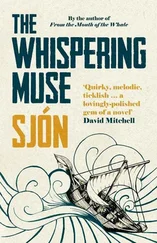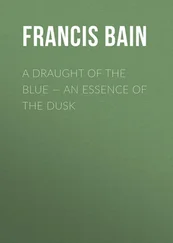This incompetent minister was so used to his parishioners’ boorishness — scuffles, belches, farts and heckling — that he affected not to hear when Abba chimed in with his altar service, which she did both loud and clear and never in tune. He was more worried that the precentor would drown in his neighbours’ spittle. This fellow, a farmer by the name of Gilli Sigurgillason from Barnahamrar, possessed a powerful voice and sang in fits and starts, gaping so wide at the high notes that you could see right down his gullet, and the congregation used to amuse themselves by lobbing wet plugs of tobacco into his mouth — many of them had become quite good shots.
Four years later Reverend Jakob died, greatly regretted by his flock; he was remembered as ugly and tedious, but good with children.
His successor was Reverend Baldur Skuggason, who introduced a new era in church manners to the Dale. Men sat quietly on the benches, holding their tongues while the parson preached the sermon, having learnt how he dealt with rowdies: he summoned them to meet him after the service, took them round the back of the church and beat the living daylights out of them. The women, meanwhile, turned holy from the first day and behaved as if they had never taken part in teasing ‘the reverend with the pupil’. They said it served the louts to whom they were married or betrothed right, they should have been thrashed long ago; for the new parson was a childless widower.
Gilli from Barnahamrar now sang louder than ever, at the speed of a piston, with mouth gaping wide. But Fridrik was asked to leave Abba at home: the word of God must reach the ears of the congregation ‘uninterrupted by the ravings of an idiot’, as Reverend Baldur put it after the first and only time Abba attended one of his services.
There was no shifting him from this position; he would not have her anywhere near him. And none of the newly civilised and well-thrashed parishioners would speak up for a simple woman who knew no greater happiness than to dress up in her Sunday best and attend church with other people.
After this, Fridrik and Hafdis had few dealings with the folk of Dale. Halfdan Atlason sneaked a visit to Abba when he could. But the parson of Botn took a wide detour when he met them on the road.
***
The churchyard at Botn stands on the banks of the River Botnsa. This is a middling-sized, smooth stream, of a good depth and high-banked, bordered by spongy patches of marsh, with plenty of good peat land and enough of that deceptive surface rust. After a winter of heavy snow the river runs wild, bursting its banks with such demonic force that the dirty-grey melt water surges out of its course, flooding the marshes and forming lakes in the graveyard, leaving the church stranded on an island in its midst. The water-ringed house of God remains cut off until the graveyard has swallowed enough of the mountain milk for the water to just cover a maiden’s ankle; by then the sanctified ground is drunk and wobbles underfoot until well into summer.
After such fits in the Botnsa, the riverbank gives way and the churchyard crumbles into the river. Then it is clear that nature has treated the dead with so little respect that all is reduced to a mush: teeth and coccyx, fingers and toes, adults and children, lower jawbones and scalps, buttocks here, a woman’s pelvis there, a vertebra from this century, a man’s paunch from the last but one.
No, one couldn’t exactly say that ‘the Lord’s garden’ here in the Dale was cultivated; and men had to be true neighbours to be willing to revisit their neighbours in this condition.
So it was that on Monday 8th January 1883, Reverend Baldur performed the funeral rites on the company that Herb-Fridrik considered worthy of those who could not bring themselves to allow a simpleton to sing out of key with her parish priest: a quilt cover stuffed with sixty-six pounds of cow dung, the skeleton of a decrepit ewe, an empty aquavit cask, some rotten barrel staves and a mouldy urine tub.
Abba deserved a different soul-mate, fairer earth.
Ghost-sun is a name given by poets to their friend the moon, and it is fitting tonight when its ashen light bathes the grove of trees that stand in the dip above the farmhouse at Brekka. This little copse was the loving creation of Abba and Fridrik, and few things made them more of a laughing stock in the Dale than its cultivation, though most of their endeavours met with ridicule.
The rowan draws shadow pictures on the snow crust; there’s a low soughing in the naked boughs and the odd twig still bears a cluster of dried berries that the birds overlooked last year.
Fridrik toils slowly up the slope; he has a woman’s body in his arms. In the middle of the grove is a freshly dug grave; on the edge of the grave stands an open coffin. The man approaches the coffin and lays the body inside. Then he hurries back, but the moon remains.
Hafdis is well equipped for her final journey. She’s dressed in her Sunday best and great care has been taken with every aspect of her costume: on her head sits a cap with a long tassel and an oft-twisted silver tube; around her neck is a violet silk scarf; her jacket is of English cloth and the embroidered borders of her bodice are visible beneath; her apron is sewn from rose damask and the buttons, cast in white silver, bear an elaborate ‘A’; her skirt is striped with cross-stitched velvet bands and her legs are encased in red socks and high black stockings; her shoes are of heather-coloured calfskin with white stitching; and on her hands she wears black mittens, with roses in four colours knitted on the backs.
Abba bought these rich clothes for herself, paying out of the wages she received for assisting with the unusual farming that is practised at Brekka; on the one hand the collecting of plants, on the other the creation of small books on Icelandic flora: ‘with fifty-seven genuine dried samples’, as was said of them in the article about Iceland in the Illustrierte Zeitung. These were the sorts of books romantic young men gave to their future brides, and the last pages were left empty for the composition of pretty poems.
Fridrik kneels beside the coffin, holding a different sort of book; it is thick and psalter-like, with the odd bird’s feather sticking out from between the pages. This is Abba’s bird book, in which she collected feathers with passion and exactitude. She glued them to the pages, and under her instruction Fridrik recorded the names and gender of the birds, and the provenance of the feathers. He had often wondered where Abba had picked up all her bird-lore, but there were no answers to be had from her, and when he tried to teach her more natural history, she thanked him politely, saying merely that she was interested in birds.
On the title page she herself had written: ‘BiRRds of tHE WOrld — AbbA fRom BreKKa’.
Fridrik places the book on Abba’s breast and lays her hands to rest in a cross on top. He inadvertently holds them tighter than intended and feels the small fingers through the mittens. This cheers him a little; these are the hands that comforted him after he lost his parents.
He kisses her brow.
He closes the coffin.
Fridrik finishes filling in the grave. He takes off his woollen cap, folds it and puts it in his jacket pocket. He pulls off his gloves and shoves them in his armpits.
He falls to his knees.
He bows his head.
He sighs sorrowfully.
Straightening up, he gazes down through the earth to where he pictures Abba’s face, and recites two verses for her. The first is an optimistic poem; a little bird rhyme of his own making:
A summer bird sang
On a sunny day:
Happiness led me,
O’er the airy way
My friend for to see.
The little bird sang
Читать дальше












